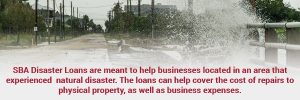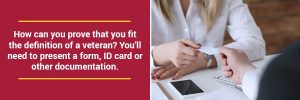
Financial Education
Entrepreneurship and serving in the U.S. armed forces have long seemed to go hand-in-hand. After World War II, nearly 50 percent of armed forces veterans went on to start their own businesses. Around 40 percent of veterans from the Korean War also ended up starting their own companies. Somewhere in the neighborhood of 20 percent of veterans of modern wars have launched or plan on starting their own enterprises.
Today, there are more than 2.5 million small, veteran-owned businesses. Although many veterans do go on to start their own companies, and veterans are more likely to be self-employed compared to the civilian population, the number of vets who do end up starting their own companies has dropped in recent years.
One reason for the decline in veterans who pursue entrepreneurship after service could be the risks and costs involved in launching a business. Business financing, such as loans, can be notoriously tricky to get unless a company already has an established credit history.
That’s in contrast to how things operated in the middle of the 20th century. Veterans who returned home from service after World War II had the option of borrowing money under the GI Bill to start a business. Today, the GI Bill only covers educational expenses, although there have been attempts to alter it to once again allow vets to use the funding to start a business.
Fortunately, there are business loans for veterans available. The U.S. Small Business Administration (SBA) guarantees loans made to small businesses by banks such as PeoplesBank. Since the SBA is guaranteeing the loans, meaning it will pay back part of the principal owed if a business owner is unable to, a bank is more likely to extend a loan to a small business even if it doesn’t have a lengthy credit history or documented revenue.
Veterans are welcome to apply for any of the loan programs guaranteed by the SBA. The administration has also begun offering special initiatives on its loan programs just for veterans. The initiatives further reduce the barrier to entry for financing for vets who hope to move into entrepreneurship or expand their existing businesses.
What Is a VA SBA Loan?
An SBA loan is a loan made by a commercial lender or bank (such as PeoplesBank) to a business owner. Although people often think of SBA loans as being used to start a business, there are also loan programs available for companies that are looking to expand or want to purchase new equipment. Some SBA loans are designed to help businesses that might have experienced a natural disaster, such as a hurricane, and need to rebuild after it.
The key thing that sets an SBA loan apart from other business loans is the Small Business Administration. While the SBA isn’t providing the funding for the loans itself, it is telling banks that it will cover a portion of the loan amount should a business not be able to pay it back. The amount the SBA guarantees is typically between 75 and 85 percent, depending on the principal of the loan.
Generally, the SBA loans available to veterans are the same as the loans available to any other type of business owner. But the SBA does offer a program that aims to encourage more veterans to apply for a loan. The SBA Veterans Advantage program reduces or eliminates the fees charged up-front on certain loans. To qualify for the advantage program, a business needs to be majority-owned by at least one veteran.
Types of SBA Loans for Veterans
The SBA has several different loan programs available, based on the needs of a small business. Additionally, some programs have several different categories of a loan within them or feature categories that offer distinct benefits to veterans. Learn more about your SBA loan options:
1. SBA 7(a) Loan
The SBA 7(a) loan is the main program offered by the administration. With a standard 7(a) loan, a business can borrow up to $5 million, with the SBA guaranteeing 85 percent of the value of loans under $150,000 and 75 percent of the amount of loans above $150,000. If a loan is under $25,000, no collateral is required. The SBA, not the bank, has the final say regarding whether or not a business is approved for a 7(a) loan.
Several iterations of the 7(a) loan program exist. They include:
- 7(a) Small Loan. The small loan program is for amounts up to $350,000. Otherwise, the terms and requirements are the same as for the 7(a) loan.
- SBA Express. The SBA express loan program also has a maximum amount of $350,000, with the SBA guaranteeing 50 percent of the loan’s principal. The highlight of the Express loan program is that the lender decides whether a borrower is eligible, and the turnaround time from the SBA is just 36 hours — rather than five to seven days.
- Export Express. The Export Express loan is for companies that export goods. Loans can be up to $500,000, and the SBA guarantees 90 percent of loans up to $350,000 or 75 percent of the value for loans over $350,000. As with the SBA Express loan, the lender decides whether a borrower is eligible or not. The SBA turns the paperwork for the loan around within 24 hours.
- Export Working Capital. An Export Working Capital loan is for companies that need additional funding to complete export sales. The loans can be up to $5 million, with the SBA guaranteeing up to 90 percent of the loan’s value.
- Veterans Advantage. Veterans Advantage is a fee reduction program designed to make 7(a) loans more affordable for veterans. As part of the initiative, through September 30, 2018, there will be no upfront fees to veterans on 7(a) loans of $125,000 or less. Fees on loans of $125,001 or more will be 50 percent less than on non-Veterans Advantage loans. Veterans also do not need to pay an upfront fee on SBA Express loans of any amount.
2. SBA 504 Loan
The SBA 504 loan program is designed to provide businesses with financing for projects or purchases that will help a company expand. Some common uses of 504 loan funding include purchasing new equipment or real property. The loans are for existing businesses that have a net worth of at least $15 million and that earned no more than $5 million in average net income during the past two years.
Unlike the 7(a) loans, the SBA does provide some funding as part of the 504 loan program. Usually, the borrowing business contributes around 10 percent out of pocket. The commercial bank contributes about 50 percent of the cost of the project, and the SBA contributes approximately 40 percent.
3. SBA Disaster Loan
SBA Disaster Loans are meant to help businesses located in an area that experienced a natural disaster. The loans can help cover the cost of repairs to physical property, as well as business expenses. To qualify for a disaster loan, a business needs to be in an area that’s been affected by a declared disaster.
4. The Military Reservist Economic Injury Disaster Loan Program (MREIDL)
The MREIDL program isn’t designed specifically for businesses owned by veterans, but rather for businesses that employ members of the armed forces who might be called to active duty at any time. The loan helps to cover the expenses that can accrue after the employee is called up. To qualify for the loan, a business must be unable to meet those expenses while the employee is away. The interest rate on MREIDL loans is not more than four percent annually, and the maximum loan amount is $2 million.
The Importance of SBA Loans for Veterans
Currently, more than 440,000 veteran-owned businesses are employers who provide jobs to more than five million people. Combined, veteran-owned employers brought in receipts of more than $1.14 trillion.
You can’t deny the impact veterans have on the overall economy of the U.S., which is why it’s critical that financing is available to help both current and aspiring business owners grow or launch a company.
The goal of the SBA loan program is to lower barriers to financing and to help companies get funding when other doors seem closed or when opportunities aren’t otherwise available.
Along with making it easier for veterans to apply for and be approved for funding, SBA loans also lower the financial barrier to getting financing. Since loans under the Veterans Advantage program eliminate or significantly reduce some of the upfront fees associated with applying for a loan, it’s now less of a burden for a vet to apply for an SBA loan.
Although the Veterans Advantage loan program doesn’t cover all SBA loan programs, it does provide a fee reduction for the loans vets are most likely to apply for. Nearly three-quarters of all SBA loans made to veterans are under $350,000 and are part of the SBA Express Loan program. This is also part of the Veterans Advantage program, which no longer charges vets any upfront fees.
A few other benefits of the SBA loan program for veterans include:
- Longer repayment terms (usually up to 10 years).
- Low interest rates (set by the lender).
- No collateral needed for loans under $25,000.
How to Get a VA SBA Loan
If you are interested in getting a VA SBA loan for your business, talk to PeoplesBank today. We can walk you through the process of applying for the loan that is most appropriate for your business, whether it’s a Veterans Advantage SBA 7(a) loan or an SBA 504 loan.
To apply for an SBA loan, either under the Veterans Advantage initiative or not, there are a few pieces of paperwork you’ll need to complete and a few facts you’ll need to verify.
How to Qualify for an SBA Veterans Advantage Loan
First things first, to qualify for a Veterans Advantage SBA loan, you need to prove that you are a “veteran” of the U.S. armed forces. The SBA has a pretty broad definition of veteran. If you fit into any of the following categories, you are a vet:
- Veterans (not dishonorably discharged)
- Service-disabled veterans
- Active duty military service member who is participating in the Transition Assistance Program
- Reservists and National Guard members
- Current spouses of any veteran, active duty service member, or Reservist or National Guard member
- Widowed spouse of a service member who died while in service or due to a service-connected disability
How can you prove that you fit the definition of a veteran? You’ll need to present a form, ID card or other documentation. The forms you need depend on your status:
- Veterans or service-disabled veterans will need Form DD 214.
- Service-disabled veterans can also present documentation from the DVA that states the vet has a disability connected to their time in service.
- Transitioning active duty military members will require DD Form 2 (U.S. Armed Forces Identification Card (Active),” or “Armed Forces of the United States Geneva Conventions Identification Card (Active)”) and DD Form 2648 or DD Form 2648-1.
- Reservists and National Guard members can use DD Form 2 (Armed Forces of the United States Identification Card (Reserve)).
- For current spouses, the veteran’s Form DD 214 and evidence of status as a current spouse (such as a marriage license) will be required.
- Current spouses of Transitioning Active Duty Military members or current Reservist/National Guard members will need DD Form 1173, Department of Defense Guard Reserve Family Member Identification Card and evidence of status as the current spouse (such as a marriage license).
- Widows of Active Duty Service Member who died in service or a widowed spouse of veteran who died of a service-connected disability will need documentation from the Department of Defense or Department of Veterans Affairs that shows that a veteran died or was disabled in service.
Additionally, for your business to qualify for a Veterans Advantage SBA loan program, it needs to be majority-owned, at least 51 percent, by veterans.
The SBA loan programs also have a few eligibility requirements that businesses need to meet to qualify for financing. Those requirements include:
- Profit: SBA loans are available to for-profit businesses only.
- Location: SBA loans are available to companies that conduct business in the U.S. or its territories.
- Financial Resources: Businesses need to use other financial sources, such as their own funding or personal assets, before seeking an SBA loan.
- Owner Equity: Business owners need to put a considerable amount of their time and energy into the operation of the company.
The SBA also has a list of the sort of businesses that are ineligible for its loan programs. Those include:
- Dealers of stamps or rare coins.
- Businesses involved in illegal activities.
- Businesses whose primary stock in trade is money, such as banks and insurance companies.
- Businesses that work in a speculative industry, such as commodities futures.
- Multi-level marketing or pyramid sales plan companies.
- Casinos, racetracks and other businesses that primarily earn money from gambling activities. This doesn’t include stores that sell lottery tickets.
- Churches or other religious organizations.
- Any not-for-profit organizations.
- Real estate investment firms.
If you meet the definition of a veteran and you are looking for financing for your existing or new business, PeoplesBank has an SBA loan that is right for you. To learn more about SBA veterans loans and to choose the loan that best fits your financing needs and your business, contact us today to get started with the loan application process.





